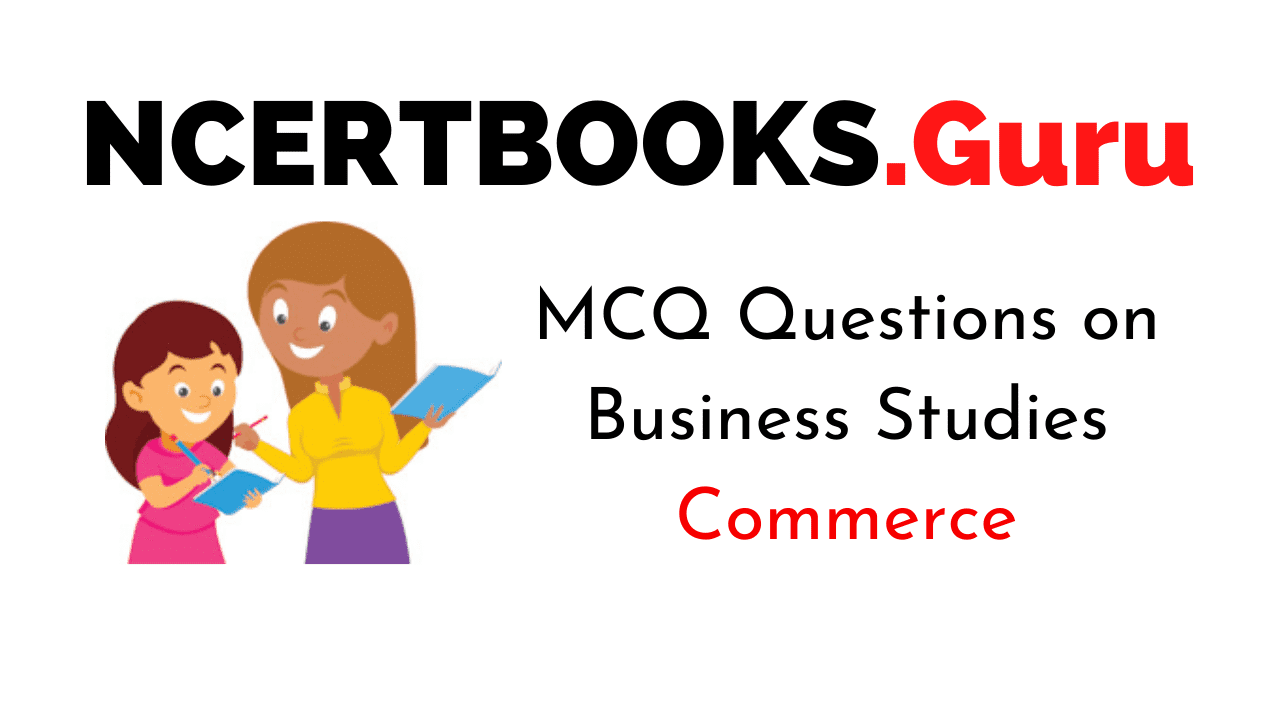MCQ Questions on Business Studies: Below, You will find a list of Commerce MCQ Questions as per the latest prescribed syllabus. Ace up your preparation with the Objective Questions available on Business Studies and enhance your subject knowledge. Understand the concept clearly by consistently practicing the Multiple Choice Questions and score well in your exams.
Business Studies MCQs for CBSE Class 11th and 12th
1. Out of four points which is not an economic activity?
(a) Production
(b) Social service
(c) Professional
(d) Trading in goods
Answer
Answer: (b)
2. Which option is not a business activity?
(a) Production of goods
(b) Transportation
(c) Exchange of goods
(d) Work in a factory for wages
Answer
Answer: (d)
3. Which of the following is the characteristic of a business?
(a) Production
(b) Exchange or sale
(c) Risk element
(d) All the above
Answer
Answer: (d)
4. Oil refinery and sugar mill are classified under which industries?
(a) Primary
(b) Secondary
(c) Tertiary
(d) None of the above
Answer
Answer: (b)
5. Identify the activity which does not support trade?
(a) Banking
(b) Warehousing
(c) Insurance
(d) Mining
Answer
Answer: (d)
6. In which occupation people get salary or wages in return for their word?
(a) Employment
(b) Business
(c) Profession
(d) None of the above
Answer
Answer: (a)
7. Which item does not cause any business risk?
(a) Breakdown of machinery
(b) Efficient management
(c) Riot
(d) Changing government policy
Answer
Answer: (d)
8. In which business, the support service activities are categorized?
(a) Commercial industries
(b) Primary industries
(c) Secondary industries
(d) Tertiary industries
Answer
Answer: (d)
9. In business, why it is essential to make a profit?
(a) It provides a return to investors.
(b) It provides funds for future extension
(c) It increases the reputation of a company
(d) All the above
Answer
Answer: (d)
10. Which of the following is a false statement?
(a) The scope of commerce is narrower than business.
(b) Commerce includes trade and auxiliaries to trade.
(c) Foreign trade is purchase and sale by the traders of the same country.
(d) Traders serve as a link between producers and consumers.
Answer
Answer: (c)
11. Which of the following is not a management function.
(a) Planning
(b) Staffing
(c) Cooperating
(d) Controlling
Answer
Answer: (c)
12. Policy formulation comes under which role?
(a) Top-level managers
(b) Middle-level managers
(c) Operational management
(d) All of the above
Answer
Answer: (a)
13. Management is defined as?
(a) An art
(b) A science
(c) Both art and science
(d) None of the above
Answer
Answer: (c)
14. Which of the below-mentioned item does not follow the scalar chain?
(a) Functional structure
(b) Divisional structure
(c) Formal organization
(d) Informal organization
Answer
Answer: (d)
15. What is Centralisation?
(a) Retention of decision-making authority
(b) Dispersal of decision-making authority
(c) Creating division as a profit centre
(d) Opening the new centre of braches
Answer
Answer: (a)
16. To have an effective delegation is important to have a responsibility along with?
(a) Authority
(b) Manpower
(c) Incentives
(d) Promotion
Answer
Answer: (a)
17. Grouping of activities on the basis product lines is a part of.
(a) Delegated organization
(b) Divisional organization
(c) Functional organization
(d) Autonomous organization
Answer
Answer: (b)
18. Policy formulation is a task of?
(a) Top-level managers
(b) Middle-level managers
(c) Operational management
(d) All of the above
Answer
Answer: (a)
19. Which of the element is not a part of the communication process?
(a) Decoding
(b) Communication
(c) Channel
(d) Receiver.
Answer
Answer: (b)
20. Name the process that converts a message into communication symbols
(a) Media
(b) Encoding
(c) Feedback
(d) Decoding
Answer
Answer: (b)
